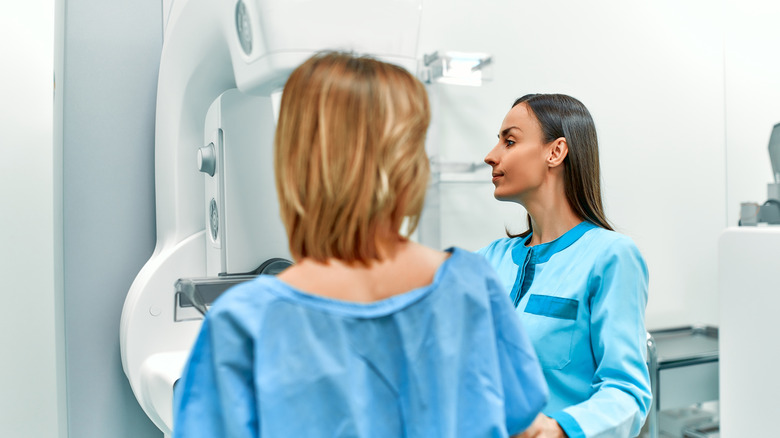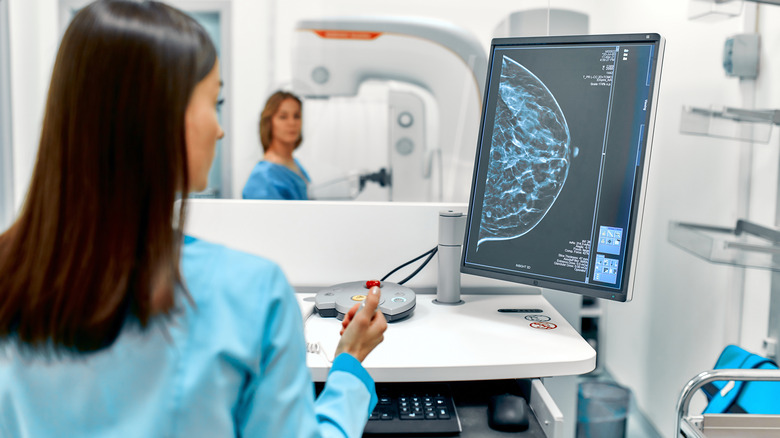How A Flaw In The Affordable Care Act Is Preventing Women From Following Up On Concerning Mammograms
Health care is a priority. The majority of us have tried some form of exercise to be fit, dieting, or treatments to stay healthy. Part of getting the most for our health is visiting the professionals, and the Affordable Care Act (ACA) helps with that. The ACA aims to lower health insurance costs, further develop Medicaid, and support medical care delivery, according to HealthCare.gov. The act, authorized in 2010, intends to be an equalizer so people in the US can get the help they need to meet their health needs.
According to the Center on Budget and Policy Priorities, the ACA is bettering many individuals' access to care, the financial burden of medical costs, and their overall health. More low-income adults with a primary doctor are receiving check-ups. There is also greater access to mental health care and fewer preventable premature deaths. Those are considerable strides in health care service. However, the ACA is not without flaws. One, in particular, is preventing women from completing mammogram follow-ups.
High deductibles discourage follow-ups
According to the Centers for Disease Control and Prevention (CDC), mammograms are a particular X-ray test used for breast cancer screenings. The CDC recommends women between the ages of 50 and 74 years old screen for breast cancer every two years. This is a protocol women need access to frequently, and the 2-year time frame is simply for women with average risk.
The ACA is helping women receive the necessary mammograms, but a recent study with lead author Dr. Michael Ngo reports it is not enough, via US News. The radiology resident at Boston Medical Center explained, "If the radiologist detects an abnormal finding on the screening image, then additional images and a biopsy are needed to determine if the patient has cancer. The ACA does not mandate insurance to cover the costs of these additional services."
The deductibles can be between $1,400 for one person and $2,800 for families and can discourage one in five women from pursuing additional screenings. In fact, the survey, which interviewed 932 people having breast imaging, found that "about 21% said they would not get indicated imaging if they had to pay a deductible, while around 59% said they would not skip imaging and almost 20% were undecided, " per US News.
Researchers are trying to figure out a way to get funding for those in need to get the follow-up screening they need.

